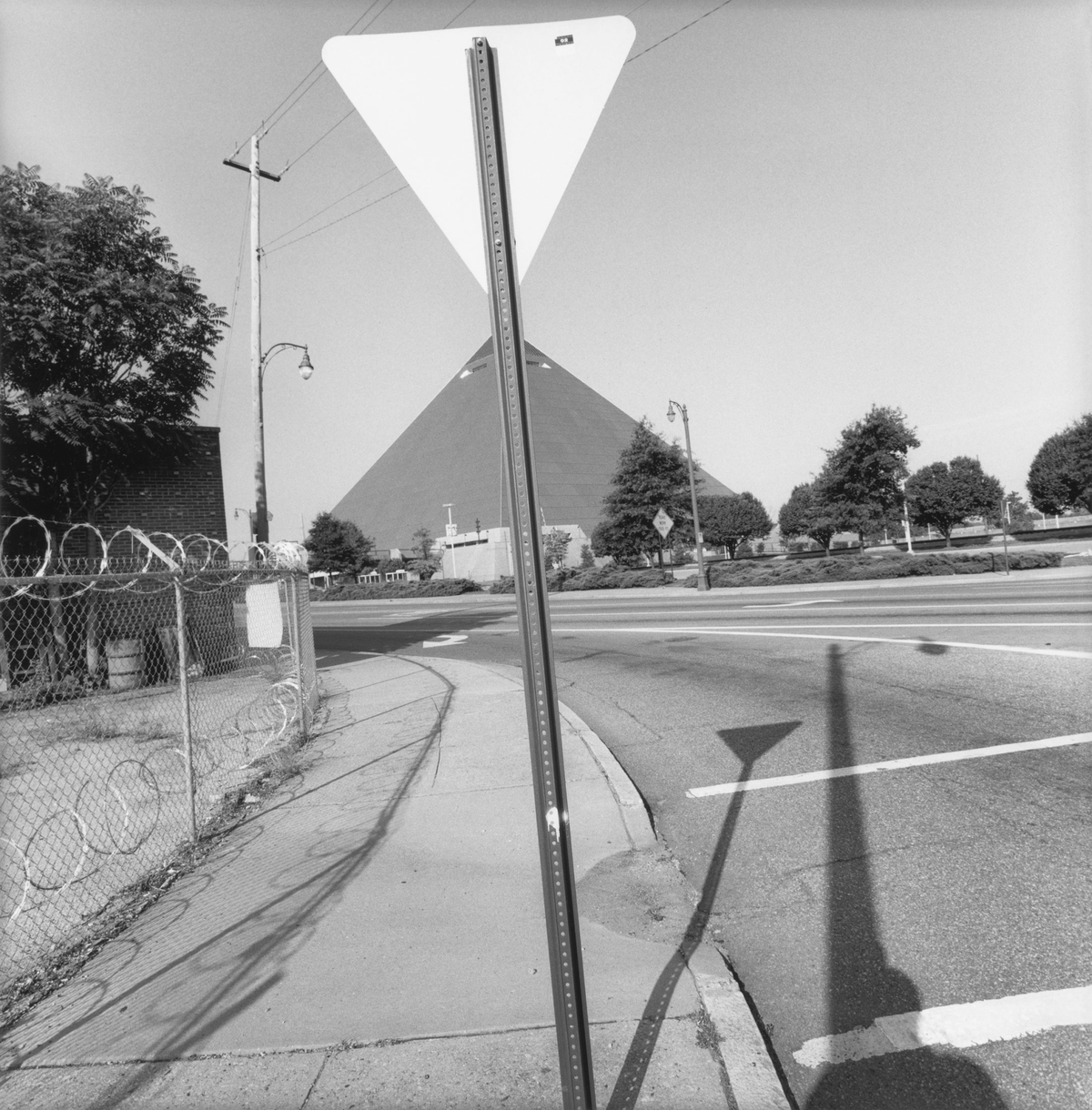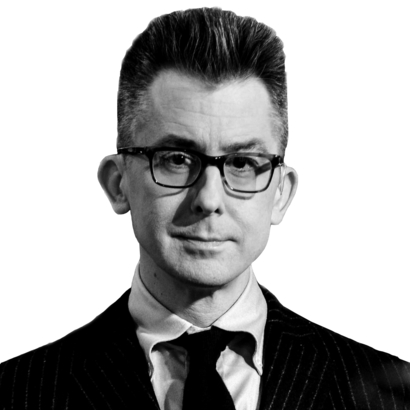Lee Friedlander is the perfect artist for these fractured times. Over the course of six decades, he has quietly crisscrossed America by car to capture sly, revealing, look-again black-and-white images of what he’s called the country’s “social landscape.”
There’s his portfolio of road signs and storefront signs, jewels of found poetry discovered on abandoned diners in Iowa, or the lonesome parking lots in western Canada and points in between. And there’s his haunting series of streetscapes that brim with poignancy—such as the businessman, for instance, glimpsed through a storefront window, slumped face down on his desk.
Over and over, it’s impossible not to be ensnared by the mystery Friedlander’s images conjure as well as the questions they raise and the emotions they spark. Over and over, you find yourself compelled to create a narrative for the image. They feel like stills from a lost film, a masterpiece we long to see the rest of. They are … cinematic. In all the right ways.

So it seems only right that Joel Coen, one of the great filmmakers of the last 40 years, a director blessed with his own unique view of the world as seen in works such as Barton Fink, Fargo, and other films he’s created with his brother, Ethan, would be drawn to collaborating with Friedlander for a new bi-coastal exhibition of his work, at the Fraenkel Gallery, in San Francisco, and Luhring Augustine, in New York.
Friedlander and Coen’s collaboration is a bit like one of Friedlander’s images—so much of the story exists outside of the frame. During lockdown, Jeffrey Fraenkel, the founder of Fraenkel Gallery, had decamped with his partner, Alan Mark, to their weekend home in Marin County, where Coen and his wife, the actress Frances McDormand, were riding out the pandemic as well. They soon formed something of a social bubble, and over dinner one evening Fraenkel, who has been a supporter of Friedlander’s for many decades, asked Coen and McDormand if they knew of the photographer’s work.
“It was,” Fraenkel says, “a creative hunch. If you’ve seen even one of Joel’s films, you know he possesses an eye for composing amazing images. So it seemed like a question to ask.”
The hunch paid off. When Coen said he knew of Friedlander’s work, Fraenkel suggested Coen curate a show. “I told him it could be whatever he wanted,” Fraenkel says. “Just 10 images.”
“Framed,” the show that Coen came up with over a year’s study of Friedlander’s work, has more than 10 images—almost 70, in fact. The show also includes a three-and-a-half-minute video by Coen (what he calls a “flip-book”) in which he arranges photographs in sequences that reveal the recurring themes and patterns that give Friedlander’s work such connection with the now: division, isolation, separation, as well as sly, witty juxtapositions that articulate our state of mind.
There’s also a pulse of poetry and beauty in the images, in particular Friedlander’s shadowy self-portraits, but especially the tender portraits taken across the decades of Maria, his wife of 65 years.
Best of all, there is this: Friedlander is still shooting—on film!—and still printing his own singular images.
“I hope he goes forever,” Fraenkel said at the opening of the show in New York. “We need his eye.”
We do.
“Lee Friedlander: Framed—by Joel Coen” is on at Fraenkel Gallery, in San Francisco, until June 26, and at Luhring Augustine Gallery, in New York, until June 24
Michael Hainey is a Writer at Large at Air Mail














 Discover
Discover